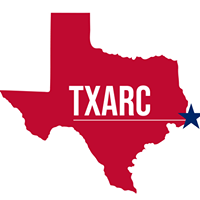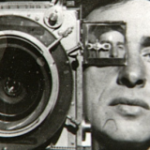Adoptees demand right to past
Activists fight for access to their birth records, but mothers say they were promised anonymity. Now, two sides take battle to Ore. court.
By Patrick McMahon
USA TODAY
MANZANITA, Ore. – Nothing may seem more central to a person’s identity than a birth certificate, the proof that you are who you say you are.
But for millions of American adults who were adopted as children, their original birth certificates are a state secret. They cannot see the documents without a court order.
Those documents are at the center of an intense battle here after Oregon voters passed an initiative last year to grant wide access to birth records.
On one side is Bastard Nation, an in-your-face group of adopted people dedicated to opening up birth records. On the other side are birth mothers who say they were promised anonymity when they gave up their children years ago.
The initiative, which is being challenged in an Oregon courtroom, has forced some birth mothers to speak from the shadows. Because some of those children were the product of rape or incest, as well as youthful indiscretion, many mothers say they feel disclosure now would wreck their lives.
“We were repeatedly assured that the bond was severed permanently,” says an Oregon birth mother who asked to be identified only as Nancy. She says she was promised anonymity when she gave birth as a college senior in the early 1960s. “Every decision I made was based on promises of confidentiality.”
A right or violation?
If Oregon and other states begin to unseal birth certificates, it “may be a milestone in the history of adoption,” says adoption historian E. Wayne Carp.
Yet to adoptee Helen Hill, 44, getting her birth certificate on request is “a basic civil right, something we can’t compromise. It’s a human right to know where you came from, whether you want to search for your parents or not.”
Last year Hill, an elementary-school art teacher here on Oregon’s coast, led the successful fight for a statewide ballot initiative that would wipe away years of adoption secrecy. The Oregon Initiative, Measure 58, would change the law to say that any adoptee 21 or older, “shall be issued a certified copy of his/her unaltered, original and unamended certificate of birth” upon request.
The measure passed, 57% to 43%, but has never gone into effect. A group of birth mothers persuaded a judge to block the new law temporarily. Their lawsuit alleges the law invades their privacy and breaches the promises of confidentiality that were made to them. A hearing is set for July 14.
None of the unnamed plaintiffs has spoken publicly. But Nancy, who has never married, says she thinks Measure 58 is “cruel. It’s open sesame. The birth mother is in a position of being hunted down. I think a lot of adoptees are in for tremendous disappointment. I don’t see any good that would come from a reunion in my case. It would turn my life upside down.”
Birth fathers are less involved in the debate over access to birth records because relatively few are listed on birth certificates, says activist Jon Ryan, 51, of Punta Gorda, Fla., who led the National Organization for Birthfathers & Adoption Reform from 1968 to 1994. “The birth father, especially in adoption issues, is defnitely a secondary figure,” he says. It’s not always certain who the father is, and birth mothers are usually advised not to list a father, Ryan says, for fear it could complicate the adoption.
In addition to finding their birth parents, gaining access to their birth records is also a matter of self-esteem, says, Shea Grimm, 33, an adoptee and co-founder of Bastard Nation. Founded in 1996 in Kirkland Wash., the group has 2,300 paid members.
“Sealed records perpetuate the stigma that adult adoptees and birth parents still feel,” Grimm says.
Only two states – Alaska and Kansas – give adoptees 18 or over complete access to birth certificates. Neither reports serious problems. Another 19 states allow limited access, depending on the year a person was adopted or whether the birth parents consent.
Although birth records are sealed, most states have set up some kind of registry that allows adoptees and their birth parents to search for each other. But the registries have limited success, depending on how much consent states require from birth parents and adoptees.
In Search of Origins
Retired elementary-school librarian Anita Field, 61, of Skokie, Ill., spent four years and more than $5,000 before she got her records two years ago. A state appointed confidential intermediary in Illinois tried for two years with no success. A private investigator found nothing. Finally, acting as her own lawyer, she persuaded a judge to give her the records.
Field found that her birth parents had died. But she met a half-brother and two half-sisters
“They gave me photographs, and they couldn’t have been nicer,” Field says.
Several states are considering or have approved legislation to make searches easier. But even when laws are passed, they can be difficult to implement. In 1996, Tennessee approved a law opening birth certificates – except for those involving rape and incest – and giving the birth parents and the adoptee the right to veto any contact. But the law was challenged in court by privacy advocates and still has not been implemented.
That law has been tied up in the courts ever since.
In some states, access varies partly on when the adoption took place. In Montana, for instance, records before July 1, 1967, are available; records from July 1967 to Sept 30, 1997, require a court order, and records of adoptions since then will be open to adoptees at 18 unless birth parents file a disclosure veto.
Bastard Nation is now eyeing Washington, Nevada and Maine as targets for Initiative campaigns, Grimm says. Many other adoption organizations also are pushing for open records nationally. Major supporters of open adoption include the American Adoption Congress, Concerned United Birthparents and organizations with broader focus such as the National Association of Social Workers.
Leading the opposition is the National Council for Adoption headed by Bill Piarce. “We’re seeing confidentiality and privacy eroding across the board,” says Pierce, who opposed Measure 58.
Yet, among professionals in the adoption field, “there is a move toward openness,” says Madelyn Freundlich, executive director of the Evan B. Donaldson Adoption Foundation in New York City. “The field as a whole has come to believe thatchildren of adoption benefit from openness.”
Birth certificates haven’t always been sealed. Earlier this century, Freundlich says, records were open, and birth certificates routinely indicated whether a birth was illegitimate. That began changing in the 193Os as states first closed the records to the public, then to adoptees themselves, Freundlich says.
“People began to think that it wasn’t a good idea to send kids to school with those birth certificates. It added to a stigma,” Freundlich says. Today adoptees in every state are issued new, amended birth certificates bearing the names of the adoptive parents and no indication that an adoption took place.
Historian Carp, author of the book, Family Matters: Secrecy and Disclosure in the History of Adoption, says Measure 58 was successful in Oregon “because advocates portray it as an equal opportunity, civil rights issue, and that appeals to voters.”
“The climate of opinion in America is very much against secrecy,” Carp says, particularly when it involves the government. But, he adds, the issue is “a double-edged sword. If you turn this thing around and appeal to the need for privacy; people’s opinions change very quickly.”


 New York Adoptee Rights Coalition
New York Adoptee Rights Coalition











